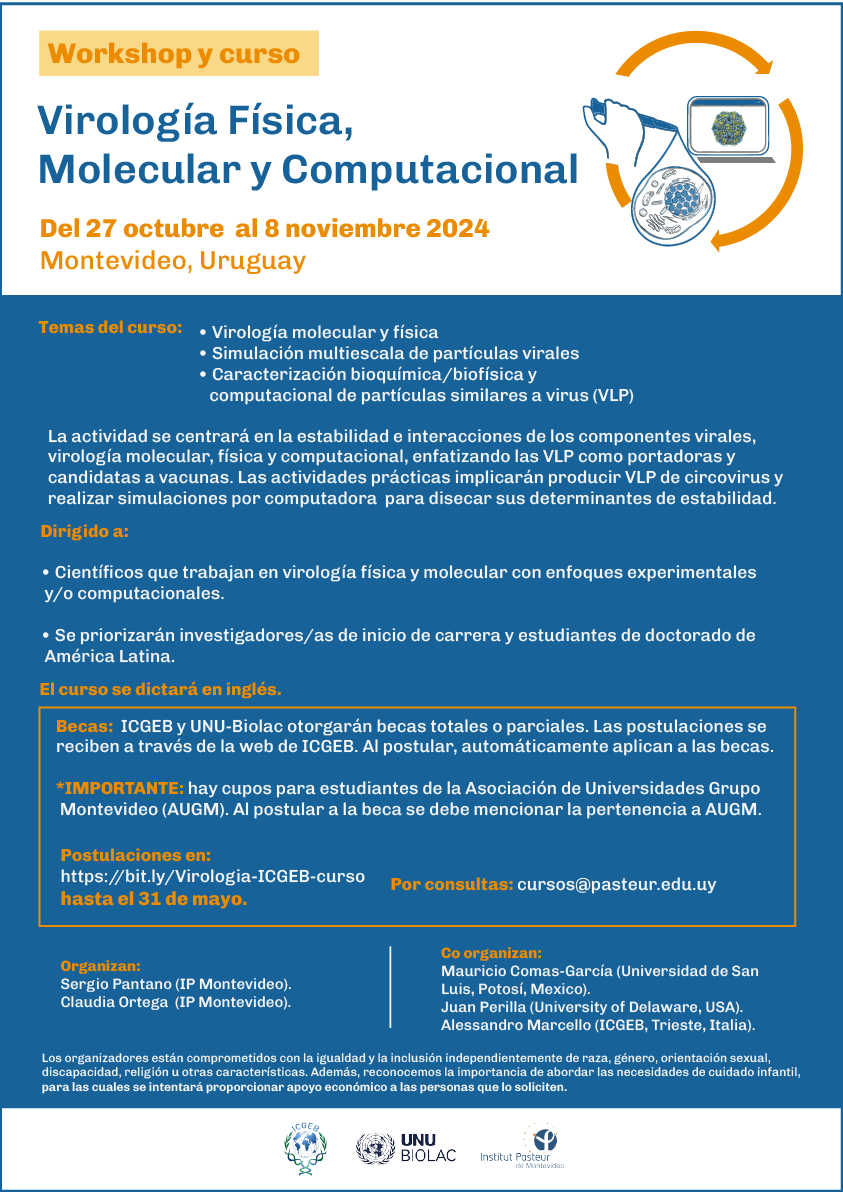Physical virology is a relatively new area that aims to determine the mechanisms of development and assembly of viral particles. In addition to providing crucial information for designing antivirals or vaccines, a detailed understanding of the mechanism behind viral assembly can inspire technological applications. Indeed, viral proteins display a diversity of functions in response to changes in the physical properties of the environment. They can be used to permeabilize membranes, create surfaces with specific properties, or as nanocarriers of molecular cargo.
Computer simulations can be crucial in understanding molecular interactions. However, the use of simulation techniques to address the study of whole viral particles remains underdeveloped in the global south due to the significant computational cost. Furthermore, this discipline requires deeply integrating conceptually distant scientific areas such as Physics, Chemistry, Molecular Biology, etc. The proposed activity consists of a workshop where guest professors present their current lines of work to introduce participants to the latest developments in Physical and Molecular Virology. Subsequently, a practical course will be held where students will learn to perform simulations of complete viral particles and, in parallel, their experimental production and purification.
This event aims to introduce postgraduate students to a broad spectrum of techniques to advance our knowledge about the stability and interactions of viral components among themselves and their host counterparts at the molecular level. We aim to cover various molecular, physical, and computational virology methods, techniques, and applications. Particular emphasis will be placed on studying and producing virus-like particles (VLPs) and their biotechnological potential as delivery agents and vaccine candidates.
The practical part of the course will be dedicated to the production of Circovirus VLPs as an application model. The Circoviridae family constitutes the smallest viral family that infects mammals. They are single-stranded DNA viruses with circular genomes between 1.7 and 2 kb. This viral family is essential because it is responsible for significant livestock losses and infects humans worldwide.
From a structural point of view, its capsid comprises 60 capsomers that organize into an icosahedral symmetry with approximate radii of 9 nm. These structural features provide the unique opportunity to study them using wet laboratory methods and molecular simulations of precisely the same VLPs over a few days, making them suitable for a course of the features proposed here.
We intend to use this feature to carry out two parallel practical activities. On the one hand, experimentally oriented students will work on producing and isolating VLPs. On the other hand, computational scientists will learn to create and run molecular dynamics simulations on the same viral model using multiscale simulation methods developed in the lead applicant's group.
Application procedure
Visit this weppage to apply.
For more information, send your questions to cursos@pasteur.edu.uy.
Deadline: June 16ᵗʰ, 2024.

